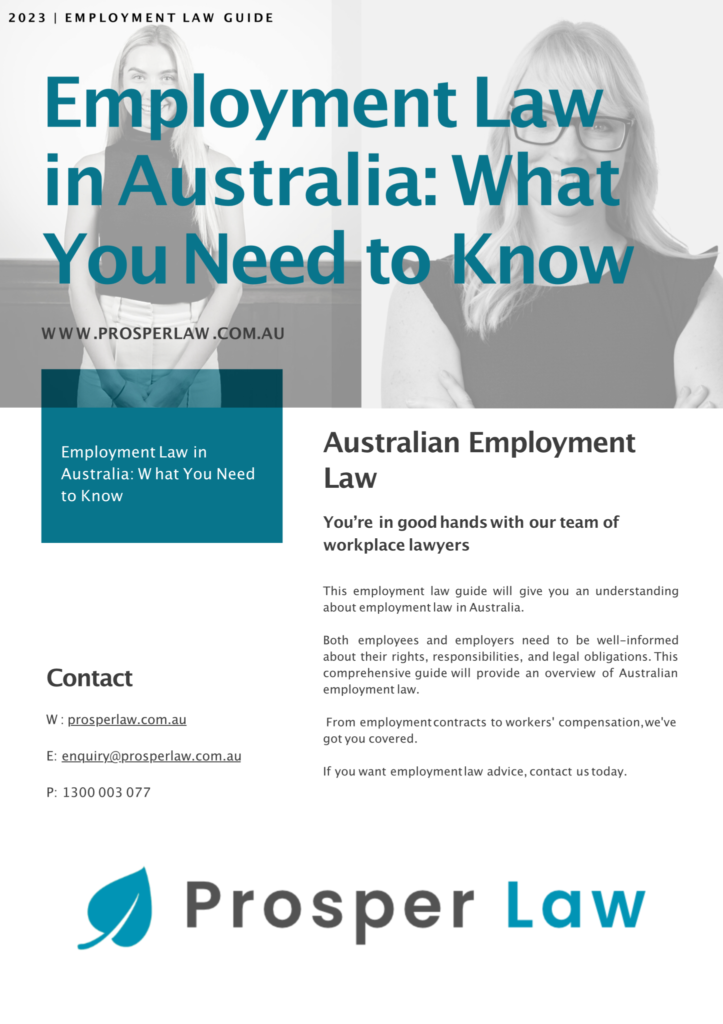For many senior executives, the end of an employment relationship doesn’t come with fair warning. A shift in board dynamics, corporate restructuring, or even internal politics can lead to a sudden and unexpected departure.
Employers may try to sidestep procedures or quietly diminish responsibilities rather than follow the formal redundancy or dismissal path. This is where repudiation of contract comes into play: a legal concept that allows executives to fight back when employers ignore obligations or act in bad faith.
In this article, our Brisbane employment lawyers explain what repudiation means in practice, why it matters during executive exits, and how executives can protect themselves.
Key Takeaways
- Senior executives often face sudden, high-stakes exits driven by politics, cost-cutting, or restructuring.
- Employer repudiation of contract can unlock powerful remedies if obligations are ignored or entitlements withheld.
- Don’t rush to sign an exit agreement – seek legal advice before committing.
- Contractual claims (e.g. breach of good faith) often provide stronger remedies than unfair dismissal.
- Protect your financial security and reputation by negotiating firmly.
What is Employer Repudiation of Contract?
Repudiation occurs when an employer demonstrates, through words or actions, that they no longer intend to be bound by the contract.
For executives, this might look like:
Ignored procedures: the company skips disciplinary or performance steps that are written into your contract.
Unfair termination: you are dismissed in a way that breaches good faith or fairness.
Role erosion: your responsibilities are stripped back, or your role is effectively abolished without transparency.
Withheld entitlements: bonuses, share options, or relocation allowances are denied.
If repudiation is established, you can treat the contract as ended and pursue damages. These damages can cover foreseeable losses such as bonuses, equity, salary, and relocation expenses – often far more valuable than a statutory unfair dismissal claim.
If you’ve already been dismissed and are wondering how to respond, check out our guide For the Executive: What to Do When You’ve Been Dismissed for actionable next steps.
Practical Steps for Senior Executives Facing an Exit
If you’re a senior executive under pressure to leave, it’s critical to approach the situation with strategy and care. Here’s a framework to protect your entitlements and reputation:
1. Pause Before Acting
Executives are often presented with exit documents and told to sign quickly. Resist the pressure. Taking time to consider your options is the first step in protecting your position.
2. Revisit Your Contract
Your employment contract is your strongest shield. Review the clauses on termination, notice, bonuses, share schemes, and relocation allowances. If your contract incorporates workplace policies, your employer must comply with them.
3. Look at Employer Behaviour
Has your role been diminished, key responsibilities removed, or your position quietly abolished? Has your employer ignored disciplinary or performance procedures? These may be signs of contract repudiation.
For a broader perspective on how executive dismissal works in Australia, you may find our article Executive Employment Dismissal insightful, especially on procedural and strategic considerations.
4. Quantify What’s at Stake
Work out what you are owed. This might include unpaid bonuses, lost share entitlements, incentives, or relocation costs.
Documenting these losses puts you in a stronger position to negotiate.
5. Safeguard Your Reputation
How your departure is framed matters. Ensure any exit statements, announcements, or references reflect your contributions and maintain your standing in the market.
6. Understand Legal Timeframes
Statutory claims such as unfair dismissal and general protections have strict 21-day time limits. Breach of contract claims allow up to six years, offering a longer runway and stronger negotiating leverage.
It’s also worth understanding which dismissals do not qualify as ‘unfair dismissal’ – our article on What Is Not Unfair Dismissal in Australia breaks down the exclusions and eligibility criteria.
7. Get Expert Legal Support
Specialist employment lawyers can identify breaches, highlight entitlements, and help structure negotiations. With representation, executives often achieve better financial settlements and more dignified exits.
Repudiation claims often overlap with other avenues such as constructive dismissal or breach of the implied duty of trust and confidence. Your lawyer can help you choose the path that maximises your financial recovery while protecting your reputation.
8. Be Prepared to Push Back
Don’t assume you must accept what’s offered. Once an employer sees you are informed and prepared to assert your rights, the terms of your exit often improve significantly.
Legal Tip: Litigation is costly and time-consuming. However, demonstrating that you’re prepared to litigate often pushes employers to the table. Many executives secure strong financial and reputational terms without ever stepping into court.

If you are a senior executive facing a sudden or pressured exit, don’t go it alone. At Prosper Law, our employment lawyers specialise in executive contract disputes, repudiation claims, and high-stakes negotiations.
Frequently Asked Questions
What’s the difference between unfair dismissal and repudiation?
Unfair dismissal is a statutory claim with strict deadlines. Repudiation is contractual and focuses on breaches of your agreement.
Remember: Executives earning above the high-income threshold may be excluded from bringing unfair dismissal claims, making contractual remedies even more important
How do I know if my contract has been repudiated?
If the company ignores agreed procedures, withholds entitlements, or acts unreasonably, repudiation may have occurred.
Sometimes exit packages include discretionary offers (known as ex gratia payments) so you may want to read our explainer on Employment Ex Gratia Payment to see how these differ from your contractual rights
What can I claim if repudiation is proven?
You may claim damages for salary, bonuses, share entitlements, relocation expenses, and other foreseeable losses.
How long do I have to bring a claim?
Unlike statutory claims, contractual claims can usually be made within six years.
If you are searching for trusted employment law firms Brisbane businesses and employees rely on, Prosper Law is here to help.
Should I settle or fight it out in court?
Many executives achieve strong outcomes through negotiated settlement. Litigation is a last resort if negotiations fail.
Employer repudiation of contract can open the door to significant damages claims, but only if you recognise the signs and act quickly. With timely advice and a clear strategy, you can turn a challenging exit into a fair resolution that safeguards your financial future.


